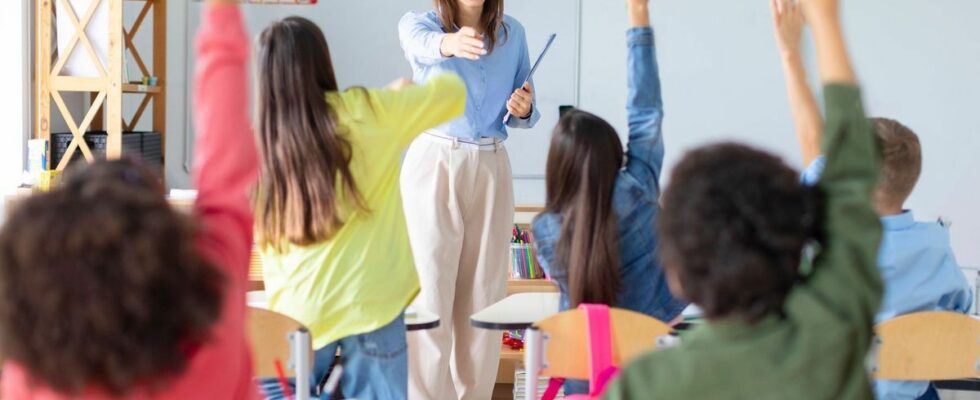Published on
updated on
Reading 2 min.
Teaching your children the line between a kind word and a thought that can cause damage to their peers is never easy. But on Instagram, an American teacher shared her personal (and colorful) method which will undoubtedly speak to your children.
School bullying sometimes begins quite simply with words that go too far, and which make friends laugh in the schoolyard. To deal with this, in France, empathy courses have been tested since January 2024, in primary schools. But on Instagram, an American teacher shared her brilliant method for approaching the subject, even with the youngest.
The 30-second rule to think before you speak
With her students, Natalie Ringold, an elementary school teacher in Minnesota, United States, established what she calls her 30-second rule to teach kindness. The principle is simple (and can be applied to the family, and in general):
If what the child wants to say can’t help the other child make a change in 30 seconds, then it’s better not to say it.
For example, telling a friend that something is stuck in their hair, or discreetly telling them that their fly is open, is information that can help them in the seconds that follow (so that’s nice!). On the other hand, if the remark concerns a physical trait, the texture of his hair, his weight…. This is not something the child will be able to change immediately, so it becomes a judgment, which can hurt.
The weight of words, in a pictorial way
The teacher also doubles her lesson with a telling image on the power of spoken words, which she compares to a tube of toothpaste. Once words are out of the mouth (like toothpaste out of the tube), they cannot enter again. The damage is done”It’s very complicated. You can’t totally go back on those words.” she warns.
Of course, there is still time at this age to also learn to apologize and repair your (small) misdeeds by making peace with your friends and learning from your mistakes. But as Natalie Ringold says “when you decide to share kind words, pleasant remarks, you are already making a difference.” Advice that adults can also apply.

